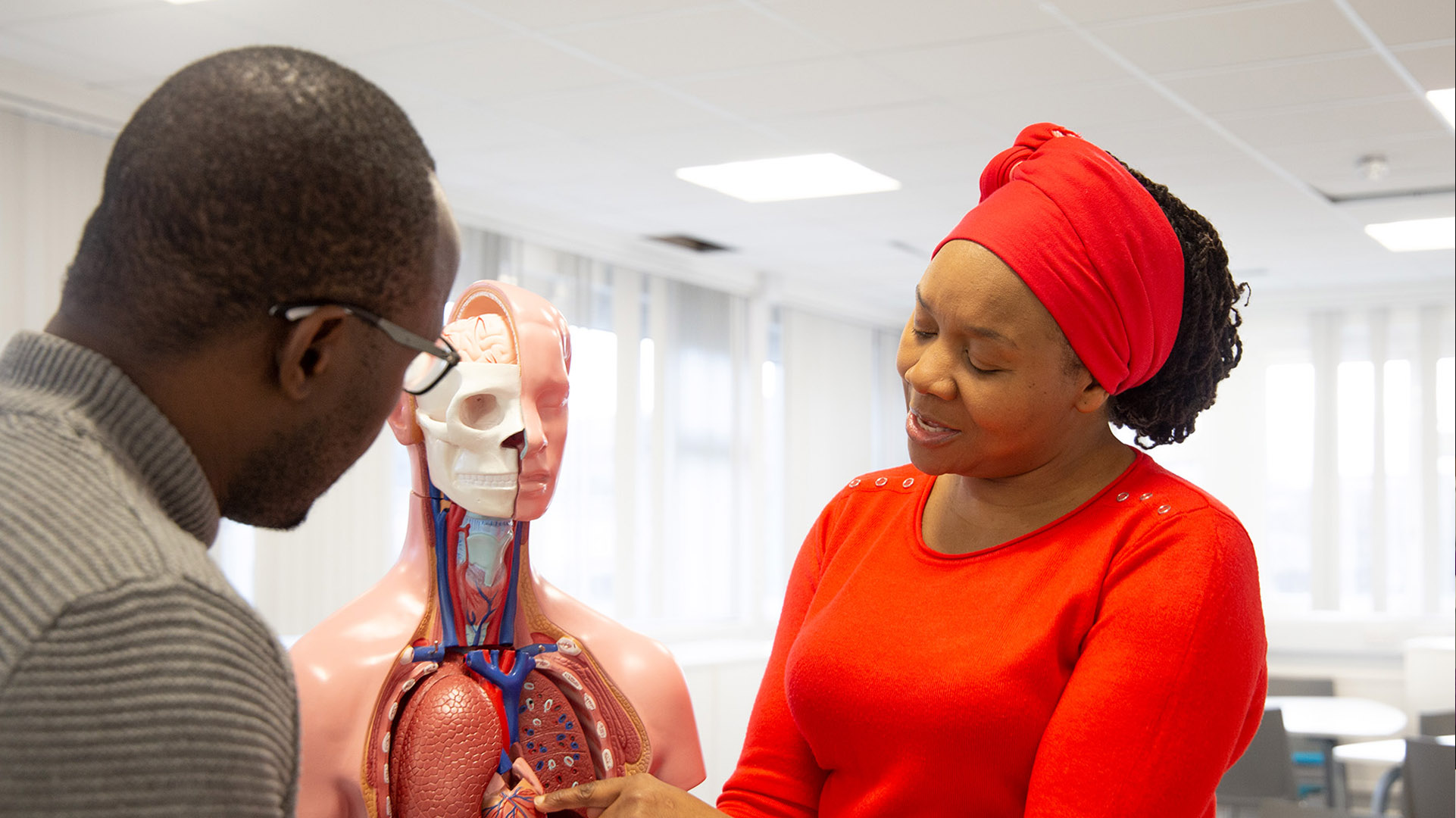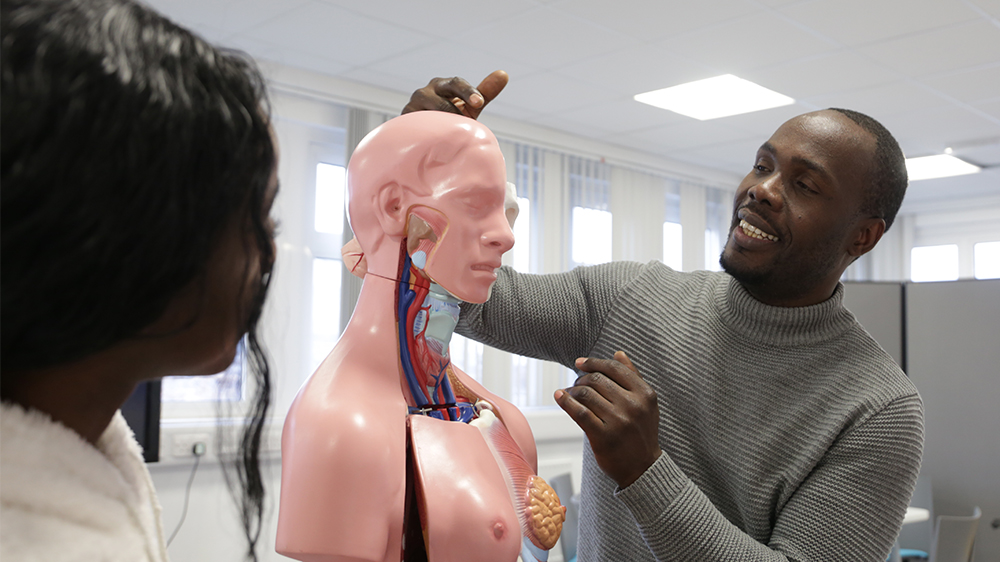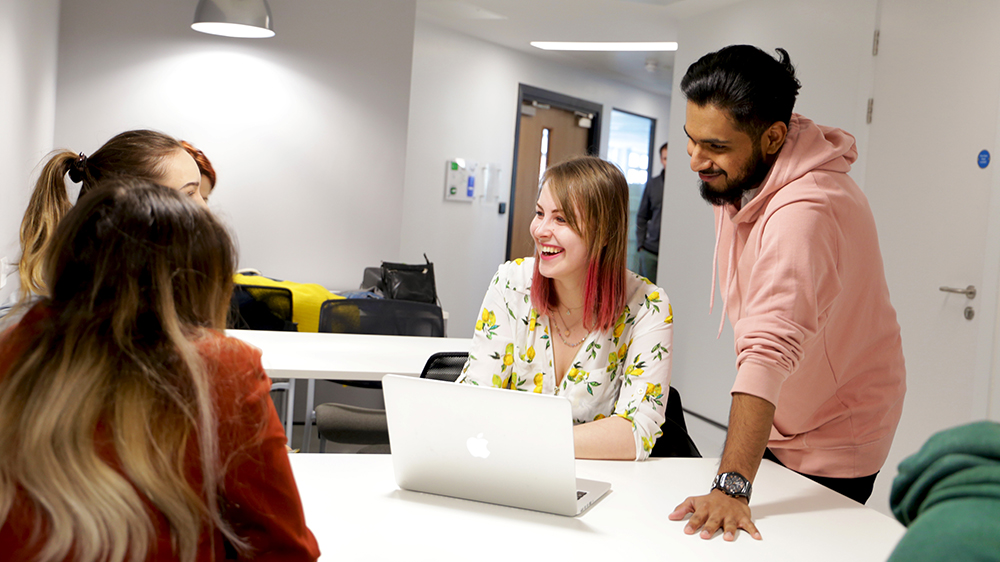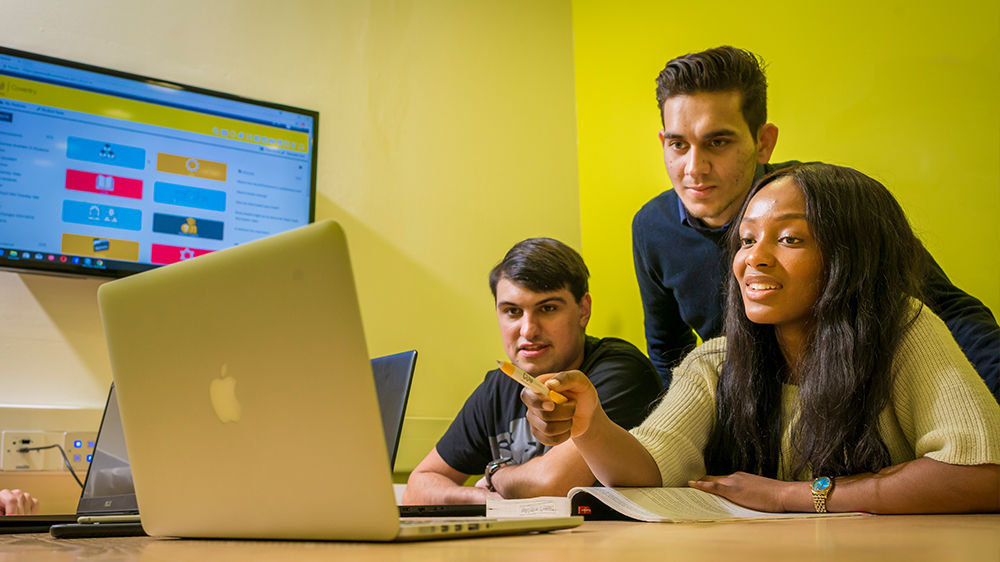Search
Public Health and Community Studies BA (Hons) with foundation year
Study level: UndergraduateHNC/HND courses

Public health is considered the science and art of promoting and protecting health and wellbeing, preventing ill-health and prolonging life through the organised efforts of society.
Course option
Year of entry
Location
CU Coventry (Coventry)
Study mode
Full-time
Part-time
Duration
4 years full-time
5 years sandwich
UCAS codes
LL5K
Start date
September 2024
November 2024
January 2025
March 2025
May 2025
June 2025
Course overview
Foundation year
The foundation year aims to provide you with a solid grounding for building a career in health and social care-related disciplines.
Degree
The Public Health and Community Studies BA (Hons) course aims to provide you with the underpinning theoretical knowledge, professional expertise and work-based learning relevant to a range of roles working in health and social care.
- The Public Health and Community Studies (Hons) degree has been designed to equip you with the knowledge, understanding and skills required to excel in a multidisciplinary community environment and to effectively support a variety of agencies, communities and individuals in promoting health and wellbeing.
- With increased attention from government on the improvement of population health, this is an excellent time to study the underlying factors that contribute to ill health and how you as a practitioner can work to promote health and wellbeing as well as tackling the social inequalities within the localities you serve.
What you'll study
We regularly review our course content, to make it relevant and current for the benefit of our students. For these reasons, course modules may be updated.
How you'll learn
Entry requirements
Typical offer for 2024/25 entry.
Fees and funding
2024/25 tuition fees.
Foundation year
| Student | Full-time | Part-time |
|---|---|---|
| UK, Ireland*, Channel Islands or Isle of Man | £7,950 | Not available |
| International/EU | £18,300 | Not available |
Degree
| Student | Full-time | Part-time |
|---|---|---|
| UK, Ireland*, Channel Islands or Isle of Man | £7,950 per year | Not available |
| International/EU | Not currently available*** | Not available |
For advice and guidance on tuition fees and student loans visit our Undergraduate Finance page and see The University’s Tuition Fee and Refund Terms and Conditions.
We offer a range of international scholarships to students all over the world. For more information, visit our International Scholarships page.
Tuition fees cover the cost of your teaching, assessments, facilities and support services. There may be additional costs not covered by this fee such as accommodation and living costs, recommended reading books, stationery, printing and re-assessments should you need them. Find out what's included in your tuition costs.
If you choose to do a work placement2, you should consider travel and living costs to cover this. There is also a tuition fee3 of £1,250 that will cover your academic support throughout your placement year.
The University will charge the tuition fees that are stated in the above table for the first Academic Year of study. The University will review tuition fees each year. For UK (Home) Students, if Parliament permit an increase in tuition fees, the University may increase fees for each subsequent year of study in line with any such changes. Note that any increase is expected to be in line with inflation.
For International Students, we may increase fees each year but such increases will be no more than 5% above inflation. If you defer your course start date or have to extend your studies beyond the normal duration of the course (e.g. to repeat a year or resit examinations) the University reserves the right to charge you fees at a higher rate and/or in accordance with any legislative changes during the additional period of study.
Foundation year funding
In order to receive funding for degree with foundation year courses, you will need to complete a four-year degree programme which includes the integrated foundation year, otherwise you may be responsible for your foundation year fees. For further information, please refer to the 'Tuition Fee Loan' details in the 'Funding your undergraduate course' section of our 'Fees and finance' page.
*Irish student fees
The rights of Irish residents to study in the UK are preserved under the Common Travel Area arrangement. If you are an Irish student and meet the residency criteria, you can study in England, pay the same level of tuition fees as English students and utilise the Tuition Fee Loan.
**This course with foundation year is not currently available to international students. If you do not meet the entry requirements to directly join year 1 of the degree, please take a look at our International Pathways Programme for additional options.
Facilities
All our facilities are located at Mile Lane. Our building has been designed to enable collaboration, creativity and innovation to flourish, and includes (subject to availability):
- indoor and outdoor social spaces, including a café
- a library that includes loan laptops, over 115,000 eBooks and a silent study area
- open access IT suites and 83-inch teaching screens
- engineering lab, science lab and a moot courtroom
- student support and careers advice teams
Careers and opportunities
With a growing demand for skilled health professionals, graduates of the Public Health and Community Studies BA (Hons) degree have an expansive list of career paths to explore. On successful completion, you will be able to:
- demonstrate understanding and knowledge of the theoretical, analytical and practical aspects of legislation, strategies and policies within a changing environment, to meet stakeholder interests
- critically appraise theories related to the development of a health promotion strategy, considering social determinants that could influence the effectiveness
- develop appropriate research and analysis techniques, alongside the ability to undertake reliable market research activities
- operate, lead and collaborate in a team to solve problems of a practical (experimental) nature and to provide appropriate solutions
- apply appropriate presentation and evaluation tools to establish the significance of research data produced.
While the majority of graduates go directly into a public health profession, others have chosen to study further in the field, with several students undertaking a master’s degree in subjects such as Public Health and Nutrition, International Business Management and Social Policy.
Where our graduates work
There are a variety of career paths from this degree programme. Graduates have gone on to work successfully in following careers:
- Briefing Advisor (higher executive officer) with the parliamentary and public accountability team within UKHSA
- Digital Care Coordinator for Primary Care network
- Independence Advisor
- Programme Leader, FE
- Addiction Support Worker
- Community Support Officer for local authority
- Health Intervention Officer for HM Prison Services
- Mental Health Link Worker
- Social Prescribing Worker








